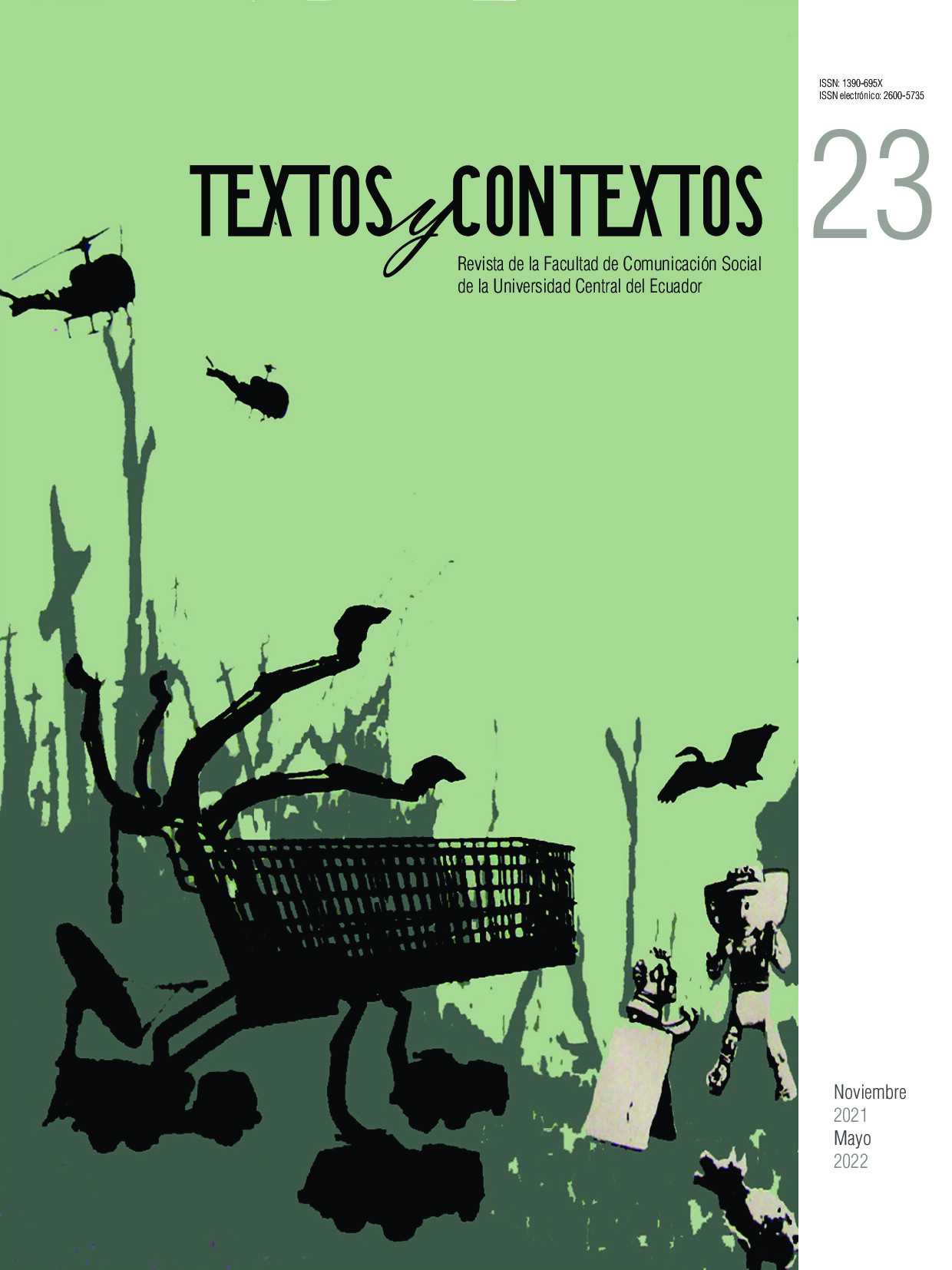Neoliberalism and the re-politicization of the individual in the Chile of today.
Main Article Content
Abstract
This article aims to explain the eruption of the massive mobilizations in Chile during the last 15 years through the emergence of the process of re-politicization of the individual and the particularization of the struggles' experience. It is based on interviews conducted in the context of a doctoral thesis with activists of three social movements: the movement of pobladores for a dignified housing, the movement of secondary school students and the LGBTQ movement. The key question here is the role that the individual plays in these
mobilizations. The hypothesis underlying this work is that current social mobilizations have managed to mobilize massively while maintaining the individual as the value axis of this process and thus overcome the apparent dichotomy between collective action and individualism. In this way, individualism as a sign of social fragmentation has given way to a re-politicization of the individual that has led to a new form of social protest and collectivism whose anchor point is the value of the singular subjectivities that are present in the mobilization process.
Downloads
Metrics
Article Details

This work is licensed under a Creative Commons Attribution-NonCommercial 4.0 International License.
References
Araujo, K. y Martuccelli, D. (2012). Desafíos comunes: retrato de la sociedad chilena y sus individuos (1.a ed.). Lom Ediciones.
Bengoa, J. (2006). La comunidad reclamada: identidades, utopías y memorias en la sociedad chilena actual. Catalonia.
Del Picó Rubio, J. (2011). Evolución y actualidad de la concepción de familia: una apreciación de la incidencia positiva de las tendencias dominantes a partir de la reforma del derecho matrimonial chileno. Ius et Praxis, 17(1), 31‑56.
Departamento de Estudios. (2014). Compendio de series estadísticas 1990-2013. Dirección del Trabajo. Gobierno de Chile. http://www.dt.gob.cl/documentacion/1612/w3-propertyvalue-22777.html
Donoso, S. C. (2014). Reconstructing collective action in the neoliberal era: the emergence and political impact of social movements in Chile since 1990 [Ph. D. Thesis]. Oxford University, UK.
Ffrench-Davis, R. (1999). Entre el neoliberalismo y el crecimiento con equidad: tres décadas de política económica en Chile. Dolmen Ediciones.
Garreton, M. (2001). Cambios sociales, actores y acción colectiva en América Latina (Serie Políticas Sociales, pp. 1‑45). Cepal. http://www.revistafuturos.info/download/down7/cam_soc_cepal.pdf
Gaudichaud, F. (2004). Poder popular y cordones industriales: testimonios sobre el movimiento popular urbano, 1970-1973. Lom Ediciones.
Giddens, A. (1984). The constitution of society: outline of the theory of structuration. University of California Press.
Guillaudat, P. y Mouterde, P. (1998). Los movimientos sociales en Chile, 1973-1993. Lom Ediciones.
Hayek, F. (1985). La route de la servitude (1944). PUF.
Instituto Nacional de la Juventud. (2010). Sexta Encuesta Nacional de Juventud (p. 434). Instituto Nacional de la Juventud, Gobierno de Chile. http://intranet.injuv.gob.cl/cedoc/encuestasnacionalesdejuventud/SextaEncuestaNacionaldeJuventud.pdf
Lagos, P. (2006). Jóvenes rebeldes y desarmados: la organización estudiantil 1991-2001. http://www.cctt.cl/correo/index.php?option=com_docman&task=doc_details&gid=35&Itemid=200008
Lechner, N. (1996). La política ya no es lo que fue. Nueva Sociedad, 144, 104‑113.
Madriaza, P. (2017). La révolte des individus: la nouvelle éthique contestataire des mouvements sociaux au Chili (2006-2012) [Ph. D. Thesis]. Université Sorbonne Paris Cité.
Márquez, F. (2003). Identidad y fronteras urbanas en Santiago de Chile. Psicologia em revista, 10(14), 35‑51.
Martuccelli, D. (2010). La société singulariste. Armand Colin.
Mascareño, A. (1988). Teoría de sistemas de América Latina. Conceptos fundamentales para la descripción de una diferenciación funcional concéntrica. Anuario de Estudios Americanos, 45, 419‑484.
Melucci, A. (1996). Challenging codes: collective action in the information age. Cambridge Univ Pr.
Morales, M. (2008). Evaluando la confianza institucional en Chile. Una mirada desde los resultados. LAPOP. Revista de Ciencia Política, 28(3), 161‑186.
Moulian, T. (1997). Chile actual: anatomía de un mito. Lom Ediciones.
Muñoz Tamayo, V. (2012). Generaciones: juventud universitaria e izquierdas políticas en Chile y México. (Universidad de Chile-UNAM, 1984-2006). Lom Ediciones.
Noonan, R. K. (1995). Women against the state: political opportunities and collective action frames in Chile’s transition to democracy. Sociological Forum, 1, 81.
Ortega Frei, E. (2003). Los partidos políticos chilenos: cambio y estabilidad en el comportamiento electoral 1990-2000. Revista de Ciencia Política (Santiago), 23(2), 109‑147.
Salazar, G. (2006). La violencia política popular en las «grandes alamedas»: la violencia en Chile, 1947-1987 (una perspectiva histórico-popular). Lom Ediciones.
Schaeffer, C. (2017). Democratizing the flows of democracy: Patagonia sin represas in the awakening of Chile’s civil society. Dans Social Movements in Chile (p. 131‑159). Springer.
Segovia, C., Haye, A., González, R., Manzi, J. y Carvacho, H. (2008). Confianza en instituciones políticas en Chile: un modelo de los componentes centrales de juicios de confianza. Revista de Ciencia Política (Santiago), 28(2), 39‑60.
Sisto, V. (2012). Identidades desafiadas: individualización, managerialismo y trabajo docente en el Chile actual. Psykhe (Santiago), 21(2), 35‑46.
Somma, N. M. (2015). Protestas y conflictos en el Chile contemporáneo: quince tesis para la discusión. Nueva gobernabilidad. Emergencia y gestión de conflictos, controversias y disyuntivas públicas en Chile. Santiago de Chile: International Development Research Centre/Tironi & Asociados.
Valenzuela Fuentes, K. (2007). Colectivos juveniles: ¿inmadurez política o afirmación de otras políticas posibles? Última Década, 31‑52.




